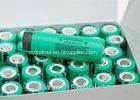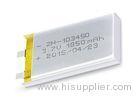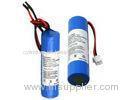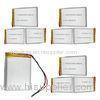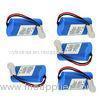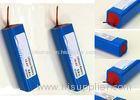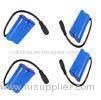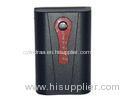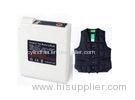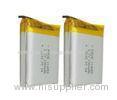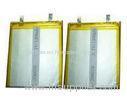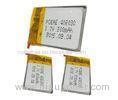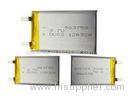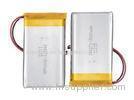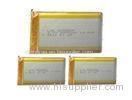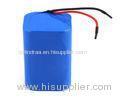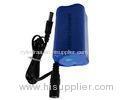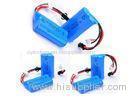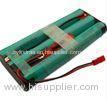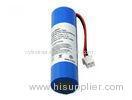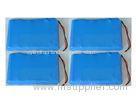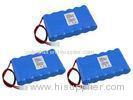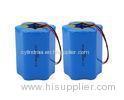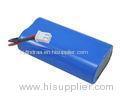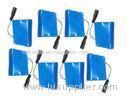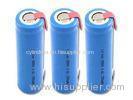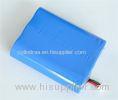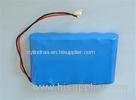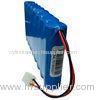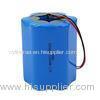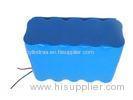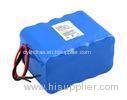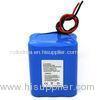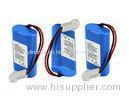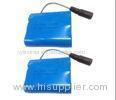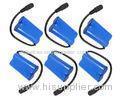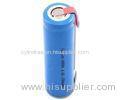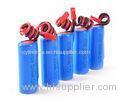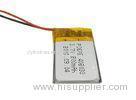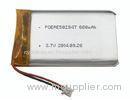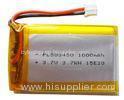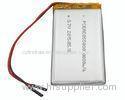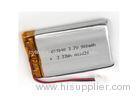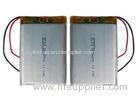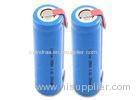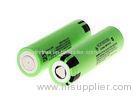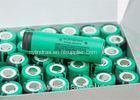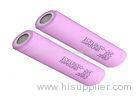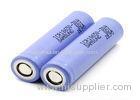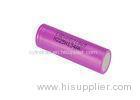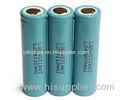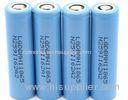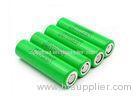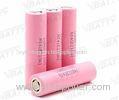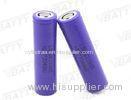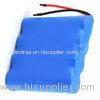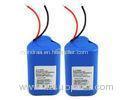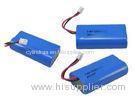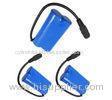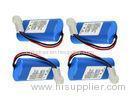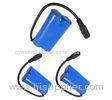|
ShenzhenGreenEnergyTechCompany
|
Panasonic 18650 3.6 V Battery / Lithium Rechargeable Batteries 3100mAh
| Place of Origin: | Zhejiang, China (Mainland) |
|
|
|
| Add to My Favorites | |
| HiSupplier Escrow |
Product Detail
Cylindrical Lithium Battery NCR18650A 3.6V 3100mAh, grade A and brand new Pana
Cylindrical Lithium Battery NCR18650A 3.6V 3100mAh, grade A and brand new Panasonic cell.
The battery is a rechargeable battery best suited to mobile devices that require small-size, light weight and high performance. Its characteristics of high energy and high voltage (3.6V) powerfully fulfill these three key requirements. Its standard battery-pack, coupled with a charger, facilitates simple equipment design.
| Name | NCR 18650A 3100mAh battery |
| Nominal Capacity | 3100mAh (Discharge: 0.2CmA) |
| Minimum Capacity | 2950mAh |
| Charging Voltage | 4.2V (Std.) |
| Nominal Voltage | 3.6V |
| Charging Method |
CC-CV (constant voltage with limited current ) |
| Charging Current |
Standard charge: 1650mA (Recommendation) Rapid charge: 3100mAh |
| Standard Charging Time |
Standard charge: 3.0hours Rapid charge: 2.5hours |
| Std. Discharge Current | 620mA |
| Std. Discharge Cut-off Current | 30mA |
| Discharge Cut-off Voltage | 2.5V |
| Cell Weight | 47g max. |
| PCB Protection trip current |
10A (approx.) protect battery from: over discharge over charge over-temperature low-temperature short circuit |
| PCB |
made of Seiko stainless steel protection plate PCB Voltage: 2.5V-4.2V PCB MOS: 3 MOSFET version |
| Cell Dimension |
Height: 68.90mm max. Diameter: 18.50mm max. |
|
Operating Temperature (Ambient) |
Charge: 0 to 45°C Discharge: -20 to 60°C Cell surface temperature when discharging: Max. 75°C |
| Storage Temperature |
1 year: -20 to 25°C 3 months: -20 to 45°C 1 month: -20 to 60°C |
Advantages:
1, High energy density
2, High working voltage
3, Pollution-free
4, Long cycle life
5, No memory effect
6, With good Capacity, resistance, Voltage, platform time consistency.
7, With short-circuit production function, safe and reliable.Dual IC chips, that can anti-shortcircuit, anti- overcharger, anti-overcurrent, anti-overload.
8, Factory price& High quality.

Features:
1,Genuine PANASONIC battery cell, high quality guaranteed
2,Direct factory price, short delivery time
3,OEM orders (battery packs assembly) are available.
Approval:
CE, UL, REACH, ROSH; ISO 9001:2008 and ISO 14001:2004 approval have been carried.
Payment:
1. We accept T/T , PAYPAL , Western Union, Cash and so on.
2. Other payment terms.
Lithium Battery FAQ:
What is the difference between Lithium batteries and Lithium Ion batteries?
There are several important differences. The practical difference between Lithium batteries and Lithium-ion (Li-ion) batteries is that most Lithium batteries are not rechargeable but Li-ion batteries are rechargeable. From a chemical standpoint Lithium batteries use lithium in its pure metallic form. Li-ion batteries use lithium compounds which are much more stable than the elemental lithium used in lithium batteries. A lithium battery should never be recharged while lithium-ion batteries are designed to be recharged hundreds of times.
What are the advantages of Lithium Ion batteries compared to other rechargeable batteries?
Lithium-ion batteries have several advantages:
They have a higher energy density than most other types of rechargeables. This means that for their size or weight they can store more energy than other rechargeable batteries. They also operate at higher voltages than other rechargeables, typically about 3.7 volts for lithium-ion vs. 1.2 volts for NiMH or NiCd. This means a single cell can often be used rather than multiple NiMH or NiCd cells.
Lithium-ion batteries also have a lower self discharge rate than other types of rechargeable batteries. This means that once they are charged they will retain their charge for a longer time than other types of rechargeable batteries. NiMH and NiCd batteries can lose anywhere from 1-5% of their charge per day, (depending on the storage temperature) even if they are not installed in a device. Lithium-ion batteries will retain most of their charge even after months of storage.
So in summary; lithium-ion batteries can be smaller or lighter, have a higher voltage and hold a charge much longer than other types of batteries.
What are the disadvantages of Lithium Ion batteries compared with other rechargeable batteries?
Lithium-ion batteries are more expensive

